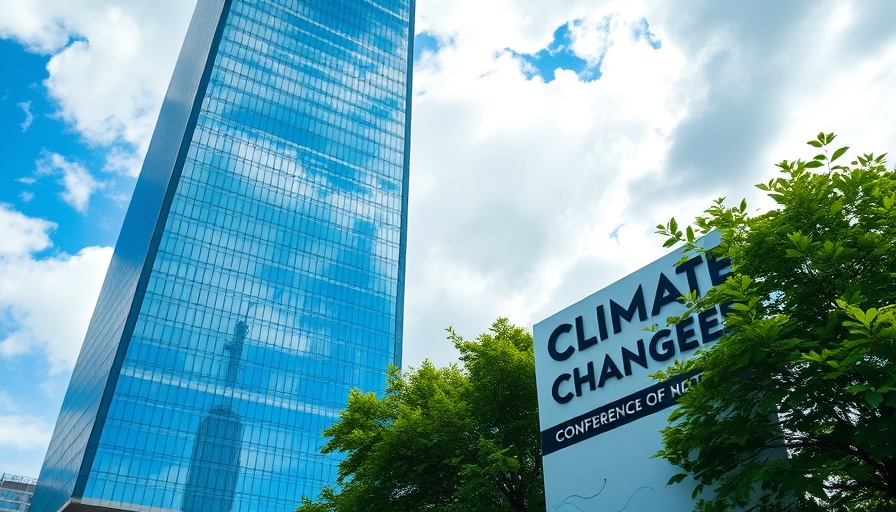
Understanding the Green Backlash in Climate Policies
As we approach COP30, there is increasing tension surrounding climate ambitions. Laurence Tubiana, the European special envoy for COP30, highlights the backlash faced by green policies. She asserts that while many perceive climate actions as detrimental to their economic well-being, this framing is misleading. In reality, it is crucial to communicate how climate change disproportionately impacts vulnerable communities. These individuals face the highest risks from environmental degradation, yet have the least resources to cope with its impacts.
Bridging Gaps: Building Consensus at COP30
The upcoming COP30 in Belém, Brazil, presents an opportunity for nations to come together and revive the cooperative spirit established by the Paris Agreement. Tubiana emphasizes that rebuilding trust and consensus among the parties is essential, particularly with key players like the United States often taking confrontational stances. The importance of hearing diverse perspectives cannot be understated; it is through dialogue that effective, unified climate strategies can emerge.
Reframing Climate Change: The Need for Positive Narratives
Climate policies have been framed by some as favoring affluent countries, leading to public resentment. Tubiana urges a shift in narrative, advocating for recognition of the climate crisis as a collective issue—one that requires equitable solutions rather than scapegoating strategies that play off socio-economic divides. As eco-friendly strategies like sustainable agriculture or renewable energy initiatives emerge, they need to be presented as opportunities for all rather than burdens to bear. Furthermore, highlighting the benefits of green energy—such as job creation and health improvements—can assist in gaining public support.
Challenges in Enforcement and Implementation
Staying committed to the Paris Agreement is crucial, but Tubiana insists that its strength lies in enforcement and actionable frameworks. As countries like the U.S. show fluctuating commitment, Tubiana maintains that having key objectives and transparent accountability mechanisms is fundamental. Without these frameworks, green initiatives risk becoming mere talking points without substantial impact on climate change mitigation.
Hope Amidst Challenges: The Role of Citizens and Communities
While Tubiana's outlook oscillates between hope and realism, she stresses a collective responsibility towards climate action. Communities can combat the green backlash through grassroots environmental projects that promote sustainability and resilience. Local action can reinforce the importance of eco-friendly practices, empowering individuals to reduce their carbon footprints in their daily lives, from investing in green energy solutions to supporting sustainable local businesses.
Future Predictions: What Lies Ahead for Climate Initiatives?
As COP30 approaches, a renewed focus on climate action is expected. Tubiana calls for a recommitment to sustainability practices, including renewable energy and a circular economy that emphasizes reusability and waste reduction. The integration of sustainable consumption into policies can shift societal norms towards more eco-friendly living, driving innovation in green technology and the development of sustainable solutions across industries.
Action Steps Towards a Greener Future
For many interested in participating in climate action, becoming informed consumers is a tangible first step. By choosing to support eco-friendly products, embracing renewable energy options such as solar power, or participating in community gardens, individuals can contribute positively to the climate movement. These efforts can amplify the call for comprehensive environmental policies and encourage corporations to adopt sustainable business practices.
Call to Action: As COP30 nears, it’s an opportune moment for all of us to reflect on our own actions and consider how we can contribute to a more sustainable future. Embrace local green initiatives, support eco-friendly businesses, and be a part of the conversation—a collective effort starts with you.
 Add Row
Add Row  Add
Add 



Write A Comment